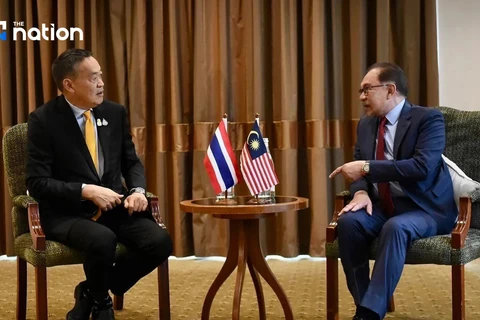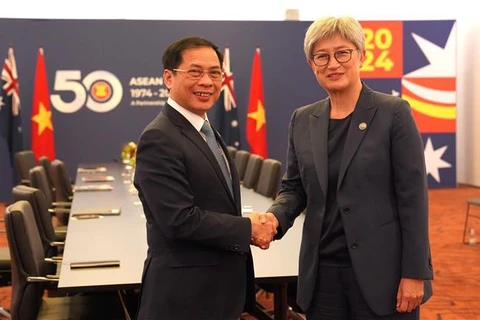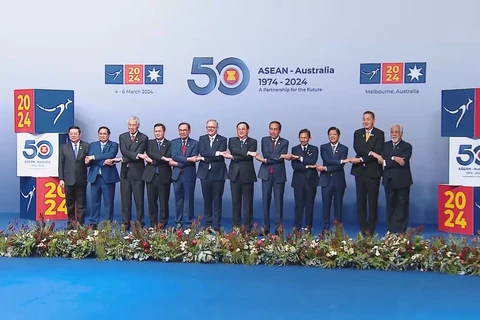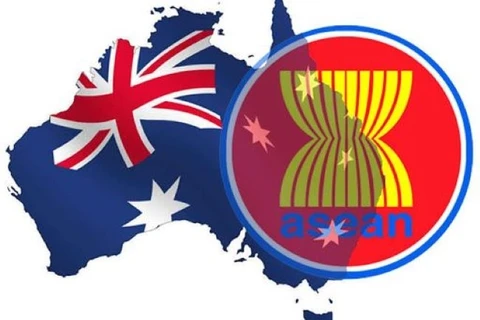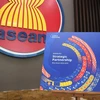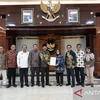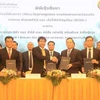 Lao Prime Minister Sonexay Siphandone (centre) giving an address to the Leaders' Plenary during the ASEAN-Australia Special Summit in Melbourne, on March 6 (Photo: AP)
Lao Prime Minister Sonexay Siphandone (centre) giving an address to the Leaders' Plenary during the ASEAN-Australia Special Summit in Melbourne, on March 6 (Photo: AP) The partnership is expected to drive bilateral cooperation across four pillars, reflecting the two countries’ shared priorities for the future: people, education and human resource development; economics, trade and investment; climate, environment and energy; and defence and law enforcement.
Australia’s Southeast Asia Economic Strategy to 2040 identified agriculture and food, resources and green energy as key areas of opportunity for Australian business in Laos. The comprehensive partnership will also support Laos to maximise sustainable development in these sectors.
Prime Minister Albanese also announced that Australia has committed 3 million AUD (1.95 million USD) to Monash University’s World Mosquito Programme to assist in the elimination of dengue fever in Laos. The programme will fund research and allow Australia to share world-class knowledge and resources to manage the spread of this disease in the Southeast Asian country.
Earlier, PM Albanese also had a bilateral meeting with Sultan and Yang Di-Pertuan of Brunei Haji Hassanal Bolkiah Mu'izzaddin Waddaulah.
The leaders welcomed the excellent state of the bilateral relationship following the historic elevation to a comprehensive partnership in June 2023, and acknowledged their countries’ shared interests in contributing to economic prosperity and regional stability for the benefit of their people.
They reiterated the importance of developing a joint plan of action to implement the comprehensive partnership, as well as their commitment to promoting a region that is stable, peaceful, prosperous, secure and resilient, and underpinned by international law, including the United Nations Charter and the 1982 UN Convention on the Law of the Sea (UNCLOS), sovereignty, open markets and the rules-based international order.
They also reaffirmed their commitment to ASEAN Centrality, and the ASEAN-led regional architecture and welcomed the implementation of the ASEAN Outlook on the Indo-Pacific through concrete projects and activities./.
VNA
